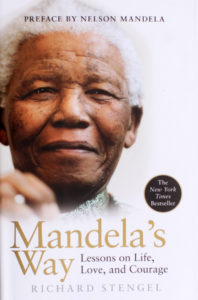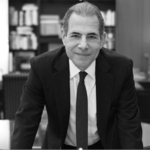Lecture Date: February 26, 2019
The Yuh Prosthodontics Lecture

A video recording of this lecture is not available.
Nelson Mandela, who died in 2013 at the age of 95, was many things: warrior, martyr, husband, statesman, and moral leader. Having spent 27 years in prison, he succeeded in liberating a country from a system of violent prejudice and united oppressor and oppressed in a way that had never been done before. As he famously wrote: “No one is born hating another person because of the color of his skin or his background or his religion . . . . people must learn to hate, and if they can learn to hate, they can be taught to love . . . . for love comes more naturally to the human heart than its opposite.” His remarkable career led him to be described as “the closest thing a world has to a secular saint.” No one has explained this complex man better than Richard Stengel.
Speaker: Richard Stengel

As a magna cum laude of Princeton University, Richard Stengel won a Rhodes Scholarship to Oxford, where he studied English and History. He subsequently taught at both Harvard and Princeton.
He has had distinguished careers in both journalism and public policy. As the longtime editor of Time Magazine, where he wrote more than 25 cover stories, he transformed that publication into a digital and social media powerhouse on a global scale. Under his stewardship, the magazine won its first magazine of the year award.
In the Obama administration Stengel served as Undersecretary of State for Public Diplomacy and Public Affairs, launching numerous programs and initiatives. He serves as a commentator on MSNBC.
Stengel spent a year and a half with Nelson Mandela, forming an unusual bond as they talked daily, allowing him to see first-hand the African leader’s strengths and weaknesses. The two collaborated on Mandela’s autobiography, Long Walk to Freedom, after which Stengel wrote his own book titled Mandela’s Way: Lessons in Life, Leadership, and Love.